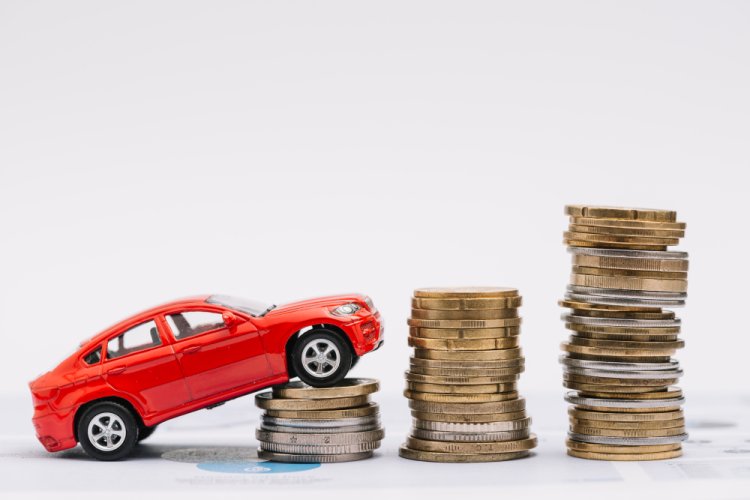Planning and heading off on a European road trip offers the freedom to explore multiple countries at your own pace, but UK drivers often make the mistake of assuming driving rules are the same across the continent. While the EU has harmonized many of its regulations, significant differences remain that can catch tourists completely off guard.

Kazimieras Urbonas, Supplier Excellence Manager at Ovoko, one of Europe’s largest online marketplaces for used car parts, has extensive experience working across European automotive markets. His role in ensuring quality and consistency across different countries has given him unique insights into the varying regulations that affect drivers.
“Every year, thousands of British drivers get caught out by rules they simply didn’t know existed,” explains Urbonas. “What’s perfectly legal in one country can land you with a substantial fine just a few miles across the border.”
Below, Urbonas breaks down the key driving law differences that every cross-border traveler should understand before setting off on their European adventure.
The Driving Rules That Change At Every Border
Toll Systems: More Complex Than You Think
France and Italy operate traditional toll booth systems where you pay as you go, but step into Austria, Switzerland, or Czechia and you’ll need a vignette – a pre-purchased sticker or digital pass that covers motorway access for set periods.
“The vignette system trips up so many drivers,” says Urbonas. “You can’t just rock up to an Austrian motorway and expect to pay at a booth. Without that vignette, you’re looking at fines starting from €120, and they have cameras everywhere to catch you.”
Switzerland’s vignette costs around 40 Swiss francs annually, while Austria offers 10-day passes for about €12.40. Miss this step and enforcement is swift and expensive.
Also read: 5 Secret Strategies to Score Luxury Cars Without The Premium Price
Eco Zones: Your Car Might Be Banned
Environmental zones across Europe use different sticker systems that can leave drivers confused. France operates the Crit’Air system with coloured stickers based on your vehicle’s emission standards, while Germany uses Umweltplakette green stickers for city centres.
Italy takes it further with ZTL (Zona Traffico Limitato) zones that restrict access to historic city centres entirely. “These aren’t suggestions,” warns Urbonas. “Drive into Milan’s ZTL without permission and you’ll face fines of €80 to €300, often arriving weeks later by post.”
Safety Equipment: What You Must Carry
While the UK requires minimal safety equipment, European countries demand much more. France mandates breathalysers in every vehicle (though fines aren’t currently enforced), reflective vests for all occupants, and warning triangles.
“The reflective vest rule catches people out because it’s not simply about having one in the boot,” explains Urbonas. “In many countries, you actually need to put it on before stepping out of your vehicle on any road, not just motorways.”
Alcohol Limits: Zero Tolerance Zones
UK drivers accustomed to the 80mg limit face much stricter rules elsewhere. Sweden and Poland enforce just 20mg per 100ml of blood – effectively zero tolerance. Czechia goes even further with complete prohibition.
“British drivers don’t realize how different these limits are,” notes Urbonas. “What might be a small fine in the UK becomes a serious criminal matter in countries like Poland, where you could face jail time.”
Dashcam Restrictions: Legal At Home, Illegal Abroad
Dashcams are increasingly popular with UK drivers, but Austria and Luxembourg have strict restrictions. Portugal bans them entirely for private use, while Germany requires specific privacy protections.
“It’s bizarre that something so common in Britain can get you in trouble elsewhere,” says Urbonas. “The privacy laws are completely different, and ignorance isn’t accepted as an excuse.”
Also read: The Hidden Costs of Car Accidents Most Northbrook Drivers Overlook
Speed Camera Rules: Flash Photography Banned
While speed cameras are common across Europe, some countries ban devices that detect them. France prohibits GPS systems that announce camera locations, while Switzerland bans radar detectors entirely.
Headlight Requirements: Daytime Running Lights
Several European countries require headlights or daytime running lights during daylight hours. This includes Denmark, Sweden, and parts of Eastern Europe, with fines up to €200.
4 Essential Tips To Stay Compliant
Urbonas offers the following pointers to help you ensure your compliance as a cross-border driver.
- Check Requirements Before You Travel: Research each country’s specific requirements weeks before departure, not at the border. Embassy websites provide reliable, up-to-date information.
- Carry Documentation: Keep vehicle registration, insurance certificates, and driving licences easily accessible. Some countries require international driving permits even for short visits.
- Download Country-Specific Apps: Many European countries offer official apps showing eco zones, toll requirements, and current restrictions. These update in real-time and can prevent costly mistakes.
- Plan Route Stops: Factor in time to purchase vignettes, stickers, or safety equipment at border crossings. Service stations near borders typically stock required items, but at premium prices.
Kazimieras Urbonas, Supplier Excellence Manager at Ovoko, commented:
“The biggest mistake drivers make is assuming that because we’re all in Europe, the rules are basically the same. That couldn’t be further from the truth. In my role working across European markets, I see how dramatically regulations can change just by crossing a border.
“The key is preparation without becoming overwhelmed. You don’t need to become an expert on every country’s traffic laws, but you do need to understand the big differences that can result in serious fines. Focus on the essentials: toll systems, eco zones, required safety equipment, and alcohol limits.
“Treat each country as if you’re learning to drive there for the first time. Check the basics, carry the required equipment, and don’t assume your UK driving habits will work everywhere. A little research beforehand can save you hundreds of pounds in fines.”

